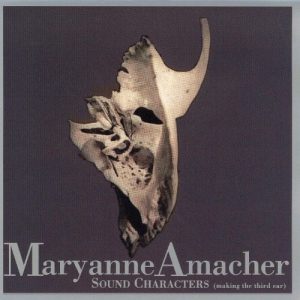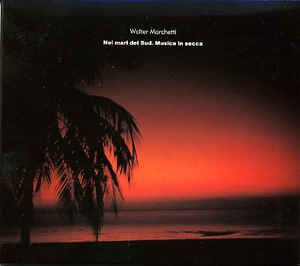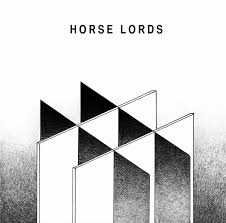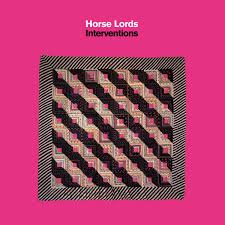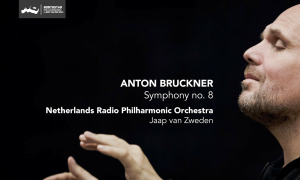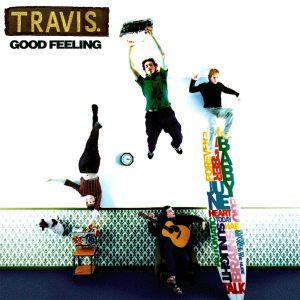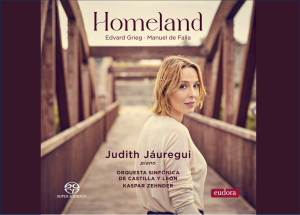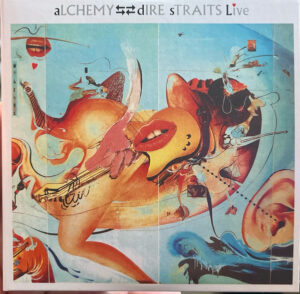"Om, Om, Om..." Dr. Johnson's chanting workshop at the Chicago ZenSonic Center was nearly over. I opened my eyes and noticed the guy next to me was standing several inches off the floor. Eager to learn how he had developed his practice, I waited by the exit to introduce myself.
I was gobsmacked to discover the man was Albert Grantowski, journalist, music reviewer, and theoretician of the outer realms of sonic experience, whose groundbreaking, "New Music for Audiophiles: A Conceptual and Psychological Introduction to a Practicable Method of Spiritual Transformation through Correct Selection of Source Material for the Home Hi-Fidelity System," I reproduced in my PF serial story, The Mysteries of His System! The Verses in His Life: A Love Story.
What luck! Grantowski! I bet I could get a PF piece out of him. I haven't written for them in years. I'll ask him to do a Wire "Invisible Jukebox"!
I proposed the following: He'd come to my apartment. I'd play anonymous sonic selections on my system, record him talking about them, and write up the encounter for PF. I hoped mention of an unopened bottle of Ardbeg Uigeadail would dissolve any reservations to accepting such an offer from a stranger. Grantowski smiled and took my arm. "Lead on," he said, cupping his ear and winking. I taped our conversation and present it here, verbatim, links added.
Maryann Amacher
AG: Maryann Amacher. I am sorry that I never heard one of her installations. This is from the first of her two CDs. In her signature pieces, Amacher uses sounds to turn the human body into a sound producer, an instrument. She works with synthesized constellations of pitches that at high volume cause sounds to "spill" out of the listener. It's unsettling at first to be so occupied, but one soon finds oneself twisting and dancing about, playing one's body as one would an instrument.
BG: Does her work relate to your thinking about acoustic dualism?
AG: [Nods.] She uses field recordings of her installations and electronic manipulations and synthesized sounds to create pieces that exist only as recordings. Her pieces eliminate the duality between what is present—the sound waves caused by vibrating membranes—and what is not present—the original music event, live or cooked in a studio.
Amacher, indeed, takes non-dual music to a level I had not considered when I wrote "New Music for Audiophiles." In her pieces that activate the listener as a sound source, the listener joins the piece, eliminating not only the present/not present duality, but also the duality of producer/listener. The listener becomes part of the system! I now recommend this music as the most effective sonic mandala for the audiophile seeking spiritual awakening.
BG: I've never thought of the Amacher in that way. Sometimes you say music, sometimes sound. What's the difference?
AG: There's no metaphysical difference or even a tenable verbal distinction. Sound is whatever is heard. Music is particular sounds identified as music by a person or culture. [Laughs.]
Chaldron Songs
Unknown
AG: Chaldron Songs! This is extremely rare! How did you get a copy?
BG: From a guy selling CDs on Michigan Avenue. I bought it only to give him money. I had no idea what it was. I don't think he did either.
AG: The songs were used in a short-lived virtual world on the Internet in the '90s. Someone recorded a group of atheistic mystics who believed that a specific set of harmonies could trigger experiences of perfect beauty. They work with just a few notes, improvising lyrics as they sing.
BG: I was hoping you'd know something about this. I couldn't find anything on the Web. I've listened to it almost every day for the past five years. No experiences of perfect beauty, just a feeling that everything is OK in spite of myself. I can't understand a single word, though clearly, they are singing words.
AG: Please make me a copy.
Sam Amidon
AG: Sam Amidon. "Little Satchel." Nico Muhly wrote that he "stole" part of his arrangement of this Sam Amidon song from John McGuire's 48 Variations for Two Pianos. I'd never heard of Amidon, but I knew the McGuire well. I found it in a discount bin at Tower Records on Clark Street.
I love Amidon's cover of this song, one of the sweetest, saddest songs, I know. "If you will be my own true lover. And I will be your loving little man. Oh we'll go to California. Any place you want to go." The sudden revelation in the fourth verse of the hero's location gets me every time.
BG: Me, too.
AG: The whole CD is great. Appalachian and echt-folk tunes sung in Amidon's rough, seemingly unschooled voice.
Walter Marchetti
Nei mari del Sud. Musica in secca
AG: Marchetti. Amazing that you played this. This led me to write "New Music for Audiophiles."
BG: Really? Please tell the story. [Mutes system. Sits cross-legged on carpet.]
AG: [Nods.] Drove me crazy first time I played it. The low sounds were just noise. Was my system unable to render the sounds accurately? Did the microphones overload? Was noise the intended sound? I dropped a couple of thousand on a new DAC, hoping it would answer my question. I could hear the low notes were clearly pitches. OK. But this just made things worse. I doubted everything I heard on my system. I couldn't believe that anything I was hearing what really what was on the recording.
Everything I played, no matter how much I had once enjoyed it, provoked doubts that spoiled my listening. How could I know what was real? What is on a recording anyway? Would this be better on vinyl? How could I presume to understand a piece of music if I couldn't be sure I was really hearing it? Does it matter whether or not I can hear what's there, if the very concept of "what's there" is empty!? How could I have been so naïve, so philosophically dense, as to think recordings could reproduce reality? What else was I missing? It was awful.
I went on like this for a couple of weeks, playing recording after recording, trying to resolve these questions. Then I moved. First thing I played was Nei mari. Now I could hear the pitches were piano notes. If just changing a room could so change a recording, what else in the world could be altering reality? I started to doubt everything, life, people, my feelings. I was going mad. I shut down my system and threw myself into my Vipassanā practice.
I had stopped listening to music, but I still read about it. One night, I was reading Kivy's brilliant, Music Alone. Music alone is instrumental music, music without lyrics, program, purpose, or reference, music that is not "about" anything. Aha! I realized that there was a recorded music equivalent—recordings alone! Recordings that only exist on a medium and cannot be performed except by playing the recording. Subotnick's Silver Apples of the Moon, much of James Whitehead's music, musique concrete, later, Burial's Untrue, and many others taught me how to listen only to what is present. There could be no doubt that my system was reproducing what's on these recordings, because there is no original to get right.
Dockstader says this in his liner notes to Organized Sound, which I know by heart, "Since these pieces can never be performed in the usual sense, this record represents their only publication: you will perform them, as they were written, when you play it on your turntable. I've included this note so you will know your performance will be an accurate one."
The true sound is whatever a listener hears! This realization led me to see recordings alone as spiritual training wheels, aids on the path to overcoming acoustic dualism and hearing only what is present. Recent discoveries in consciousness show that this realization is always true! Manzotti puts it like this, "It is our direct individual experience that is unerringly true; being one with the external world, it cannot be wrong." Exactly!
Now I hear Nei mari as a kind of temple music. The deep, warm resounding notes quiet my ego, and I float in a kind of expectant, blissful state.
Horse Lords
AG: Horse Lords command ecstasy! [Pushes his glass through to air in my direction. I add scotch. Takes a large sip. Leans back. Closes eyes.] This is their first album. Drone music, parsed and organized according to occult, mathematical rules derived from Reichian phase-shifts. The private music of threshing machines on LSD. Fields of electromechanical flowers blooming and dying, endlessly. Music that lays you a table, slices you breastbone to belly button, removes your self and replaces it with its mutated, extraterrestrial universe.
BG: Albert?
AG: Do you have Interventions?
BG: Yes.
AG: Please play it immediately as this ends.
Horse Lords
AG: This music doesn't move me. It bends me to its will. [Head slumps to side. Empty glass slides from hand.]
BG: Albert?
I fitted an old comforter ‘round him and turned out the listening room light. He'd sleep fine in the Roche Bobois recliner my parents ceded to me years ago when they moved to a condo.
Next morning, I made a mug of espresso and a copy of Chaldron Songs and took them into the listening room. Grantowski opened his eyes. I welcomed him to the morning and handed him the disk. Before I could give him his coffee, he nodded, pulled off the comforter, and floated away, out the front door, which opened before him.




